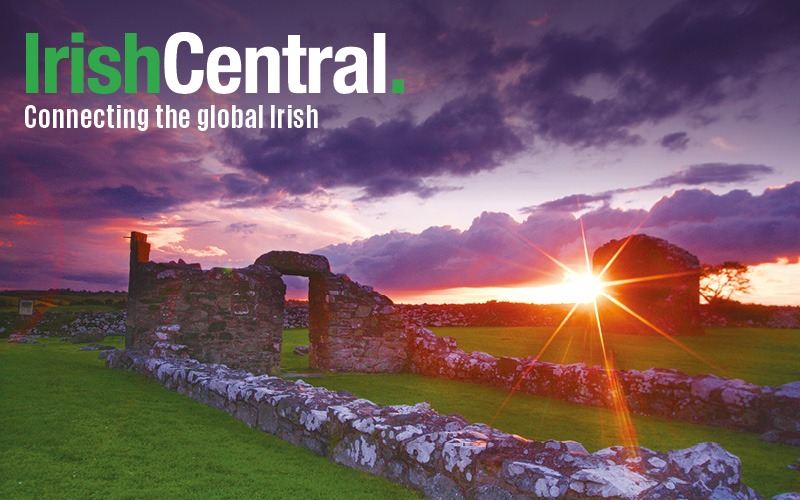Cadbury's, Ireland's leading chocolate manufacturer, is denying that the word “Easter” has been dropped from the packaging of their famous chocolate eggs this spring in an attempt to market their products in a more secular way.
A spokesperson from Cadbury’s told the Irish Independent that “Easter” was not prominently displayed on the chocolate egg packaging because they felt that “Easter” was implied by the product itself, denying that it was down to political or religious correctness.
“Most of our Easter eggs don’t say Easter or egg on the front as we don’t feel the need to tell people this – it is very obvious through the packaging that it is an Easter egg,” said the spokesperson.
Not only is “Easter” nowhere to be seen on the front of the boxes this year, but “Cadbury’s Easter Egg Trail Pack” has been replaced with “Cadbury Egg Hunt Pack” and the chocolate manufacturer’s Creme Egg product – commonly known to disappear from the shelves after Easter – shows no references to Easter in warnings of the deadline by which to scoop them up.
Instead of referencing the Christian holiday, the company is advertising the date after Easter Sunday as the time from which the product will no longer be restocked.
The word is not completely stricken from the packaging, however. It appears in small print on the back of the box, although the Cadbury’s spokesperson could not say precisely when it was demoted from the main design or for what reason.
Read more: Top ten chocolates for Irish chocoholics
Cadbury's is not the only chocolate makers showing a significant lack of references to Easter in this year’s batch of eggs.
Yay! Religion is reclaiming the Easter egg! This one depicts Our Saviour. I think. Though it could be the other guy. pic.twitter.com/yXsIqPOHEc
— Garvan Grant (@garvangrant) March 30, 2015
Removing the word Easter from Easter egg incase it offends another religion? What's next removing Christ from Christmas? ��
— Ella Underhill (@ellaunderhill) March 24, 2016
Nestle is also now selling “Large Milk Chocolate Egg with Quality Street inside” instead of a “Quality Street Easter Egg.” Following the same line as Cadbury’s, however, a spokesperson for the company suggested that Easter was implied by the selling of the chocolate eggs themselves.
The spokesperson stated: “There has been no deliberate decision to drop the word Easter from our products and the name is still widely used at Nestle.”
Others are not convinced that this isn’t a calculated move by the chocolate companies to sell more eggs by removing the reference to a Christian feast day. David Marshall, founder of The Meaningful Chocolate Company – an English company that sells both advent calendars and Easter eggs unashamedly bearing references to Christianity – claims the decision to remove the word “Easter” is a deliberate attempt at secularization of the food product.
Not only has Marshall named his own product the “Real Easter Egg” in retaliation, but the company includes mentions of Jesus and the events of Holy Week on their packaging.
“A lot of businesses are not comfortable with the religious aspect of the festival,” he said.
“If they want to make their product as attractive to as many people as possible it could well be that they want to remove references to the Christian festival because that will be seen as attaching to one faith tradition.”
“It’s deeply disappointing and shameful that some of the biggest companies in the country are censoring the centuries’ old tradition,” Marshall continued.
“It shows they’re insensitive and uncomfortable with the Christian faith.”
Time to order Real Easter eggs. Free delivery. Be quick as we tend to sell out. Link below https://t.co/Eaf0MrOJXL pic.twitter.com/MNokA0iFSD
— Meaningful Chocolate (@MeaningfulChoc) February 29, 2016
Selling his Fairtrade charity “Real Easter Egg” from his own company, Marshall found that, in the UK at least, 79% of 2,000 adults quizzed would prefer the word to remain on the branding.
Whether the packaging reads “Easter” or not may be of no interest to those buying eggs in Ireland, however, as over 20,000 tons of packaging waste will be created throughout the country in the next few days, with those celebrating the holiday discarding their boxes for the chocolate inside.
The amount of packaging thrown away would in fact fill 161 Boeing 747s.
It is estimated that as much as $44.7 million (€40 million) will be spent on Easter eggs by Irish consumers this year – an average of eight eggs per household – with children eating up 250 teaspoons of sugar this Easter Sunday.
Such is the extent to which the Irish overindulge on Easter Sunday that it would take a marathon runner four million marathons to burn off the amount of calories the Irish population will take in over the next few days.
A third of Irish children are set to receive up to 15 eggs from the Easter bunny this weekend with only 15 percent receiving just one egg. On average, Irish children will eat five eggs each.
“The temptation at Easter to demonstrate your love for your family members in kilograms of chocolate is easily understood given the huge displays of affordable chocolate on offer at this time of year,” said Mummypages.ie spokesperson Laura Haugh.
“However, too much of this kind of ‘love’ will actually hurt those you care about the most.
“We are currently on track to become Europe’s fattest nation by 2030 and all our Easter chocolate will certainly not help this fact.
Eggs, although not always in chocolate form, have been used to celebrate Easter since the early days of the Christian church. Christians in Mesopotamia dyed eggs red to symbolize the blood Christ spilled during his crucifixion.
Read more: A guide to celebrating a traditional Irish Easter
The egg is extremely symbolic to Christians, often seen as the symbol of Jesus. The hollow egg is seen as a symbol of his empty tomb on Easter Sunday and the cracking of the egg’s shell symbolizes Jesus’ resurrection.
The original chocolate egg was first developed Cadbury’s in collaboration with British chocolate maker and inventor Joseph Fry. Richard and George Cadbury produced the company’s first chocolate egg in 1875 with thanks to the chocolate molds developed by Fry.
By 1919, Cadbury and Fry merged their companies and in 1923 they developed the first chocolate egg filled with cream, a prototype for what was to become the famous Easter-only Cadbury’s Creme Egg.
Do we need to have “Easter” sprawled across our chocolate eggs to understand what they are or is this a tactical move by chocolate manufacturers to increase sales? Let us know what you think in the comments section, below.
H/T: Irish Independent




Comments